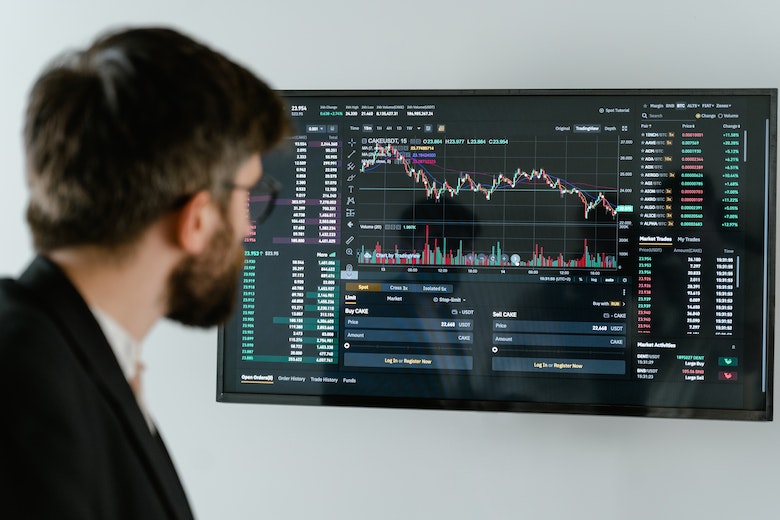In today’s digital age, data gathering has become an integral part of many businesses and organizations. Companies collect data on their customers’ behaviors, preferences, and demographics to better understand them and improve their products and services. Meanwhile, government agencies gather data for a variety of purposes, such as maintaining public safety and national security. The amount of data being collected on individuals is staggering and shows no signs of slowing down. But what technologies are being used to gather this data, and how does it impact our privacy?
In this blog post, we’ll explore the various technologies used for data gathering, including tracking technologies, social media platforms, data brokers, and government surveillance. We’ll examine the benefits and potential drawbacks of each technology, as well as the potential impact on individual privacy. Additionally, we’ll provide tips for individuals to protect their personal information online and advocate for stronger data protection laws.

Table of Contents
Tracking technologies
Tracking technologies are commonly used to collect data on individuals’ online behavior. These technologies include cookies, beacons, and pixel tags. Cookies are small files that websites place on a user’s computer to remember their preferences or track their activity. Beacons are small images embedded in emails or web pages that track user behavior, such as opening an email or clicking on a link. Pixel tags are similar to beacons but are often used for tracking website visitors.
Location tracking is another form of tracking technology used to gather data on individuals. Many mobile apps and websites collect data on a user’s location to provide personalized services, such as weather forecasts or restaurant recommendations. However, this data is used for targeted advertising or surveillance purposes as well, which raises privacy concerns.
Device fingerprinting is a more advanced form of tracking that identifies a device based on its unique characteristics, such as browser type and installed fonts. This technology can be used to track users across multiple devices and websites, even if they use different usernames or email addresses.
While tracking technologies have benefits such as providing personalized services and improving website functionality, they can also raise concerns about privacy and security. For example, tracking data can be used to create detailed profiles of individuals, which can be sold to third-party advertisers or used for identity theft. Additionally, tracking data can be vulnerable to hacking or theft, which can put individuals’ personal information at risk.
Overall, tracking technologies are a powerful tool for data gathering, but their use must be balanced against individual privacy and security concerns. It is important for individuals to be aware of the tracking technologies used on websites and mobile apps and take steps to protect their personal information.
Social media Platforms
Social media platforms are a significant source of data gathering in today’s digital age. Platforms such as Facebook, Twitter, and LinkedIn collect vast amounts of data on their users, including their demographics, interests, and behaviors. This data is used for targeted advertising, content recommendations, and other personalized services.
One way that social media platforms collect data is through user interactions with the platform itself. This includes actions such as liking a post, sharing content, or clicking on an advertisement. Social media platforms also collect data on users’ interests and preferences based on the content they engage with and the pages they follow.
Another way that social media platforms gather data is through third-party apps and websites that integrate with the platform’s APIs. This allows these third-party services to collect data on users’ activities on their own platforms and link it to their social media profiles.
While social media platforms such as Facebook have provided new ways for individuals to connect and share information, they have also raised concerns about data security. Users may not be aware of the extent of data collection by social media platforms and the ways in which their personal information is being used. Additionally, social media platforms have been criticized for their handling of user data breaches and for selling user data to third-party advertisers.
In response to these concerns, many social media platforms have implemented stronger privacy controls and transparency measures. However, it remains important for users to be aware of their privacy settings and the ways in which their personal information is being used on social media platforms.
Data brokers and background check services
Data brokers and background check services are two types of businesses that gather and sell personal information on individuals. Data brokers collect information from a variety of sources, including public records, social media, and online activity, and create detailed profiles on individuals that can be sold to marketers, employers, and other interested parties. Background check services, on the other hand, specialize in gathering information on individuals that is relevant to making hiring or other important decisions.
One example of a popular background check service is Intelius. Intelius people search service allows users to search for information on individuals such as their contact information, criminal records, and employment history. Intelius and other background check services often gather information from public records, social media, and other online sources to compile their reports.
While these services can provide valuable information for employers and individuals seeking to make informed decisions, they also raise concerns about privacy and accuracy. The information gathered by these services may not always be up-to-date or accurate, and there is a risk that personal information could be used for discriminatory purposes.
Additionally, data brokers and background check services are largely unregulated, which means that there are few laws governing their practices. This can lead to abuses of personal information and other unethical practices.
To protect themselves, individuals should be cautious about sharing personal information online and should take steps to limit the amount of personal information that is publicly available. They should also research any background check services or data brokers before using their services to ensure that they have a good reputation and a commitment to privacy and accuracy.
Government surveillance
Government surveillance refers to the collection of information by government agencies for national security, law enforcement, and other purposes. The use of technology in government surveillance has become increasingly common in recent years, with agencies such as the National Security Agency (NSA) and the Federal Bureau of Investigation (FBI) using tools such as wiretaps, drones, and facial recognition technology to gather information.
One of the most controversial forms of government surveillance is the collection of data on individuals’ online activity. The NSA’s surveillance programs, which were revealed by whistleblower Edward Snowden in 2013, collected vast amounts of data on individuals’ internet and phone activity, including metadata and content. This raised concerns about privacy and civil liberties, as well as the potential for abuse of power by government agencies.
Facial recognition technology is another form of surveillance technology that has raised concerns. Law enforcement agencies use facial recognition technology to identify individuals in real-time or to match images from surveillance footage to a database of known individuals. However, this technology has been criticized for its potential for errors, biases, and misuse, particularly in cases where individuals may be wrongly identified as suspects.
The use of government surveillance has sparked a debate about the balance between national security and individual privacy. Proponents argue that surveillance is necessary to prevent terrorist attacks and other threats, while opponents argue that it violates individuals’ rights to privacy and due process.
To protect individual privacy, there have been calls for greater transparency and oversight of government surveillance programs. Additionally, some have called for stronger laws and regulations to limit the use of surveillance technologies and protect individual rights.
Protecting your data
Protecting personal data has become increasingly important in today’s digital age. With the amount of personal data being collected by companies, organizations, and governments, it is crucial for individuals to take steps to protect their privacy and security.
One way to protect personal data is to be mindful of the information that is shared online. This includes being cautious about the personal information that is posted on social media and other websites, as well as the information that is shared with third-party apps and services. Individuals should also be careful when responding to unsolicited emails or phone calls, as these may be attempts to obtain personal information through phishing or other scams.
Another way to protect personal data is to use strong passwords and enable two-factor authentication whenever possible. This can help prevent unauthorized access to online accounts and protect against identity theft.
It is also important for individuals to read privacy policies and terms of service agreements carefully. These documents outline how personal information is collected, used, and shared by companies and organizations. If a policy or agreement raises concerns, individuals can choose not to use the service or can contact the company for more information.
Advocacy for stronger data protection laws is another way to protect personal data. Governments and regulatory bodies can implement laws and regulations that require companies and organizations to be more transparent about their data collection practices and provide individuals with greater control over their personal information.
Conclusion
In conclusion, the rise of technology has made data gathering an integral part of many businesses and organizations. However, the increasing amount of personal data being collected raises concerns about privacy and security. Tracking technologies, social media platforms, data brokers, and government surveillance are just a few of the ways in which personal data is being collected, and these practices have sparked a debate about the balance between individual privacy and national security.
To protect personal data, individuals can take steps such as being mindful of the information that is shared online, using strong passwords and enabling two-factor authentication, and reading privacy policies and terms of service agreements carefully. Advocacy for stronger data protection laws can also help to protect personal data by promoting greater transparency and control over personal information.
It is important to note that protecting personal data is not just a matter of individual responsibility. Companies, organizations, and governments also have a responsibility to protect personal data and ensure that it is not misused or exploited. By working together, individuals, companies, organizations, and governments can create a safer and more secure digital environment that respects individual privacy and promotes innovation and growth.











Leave a Reply